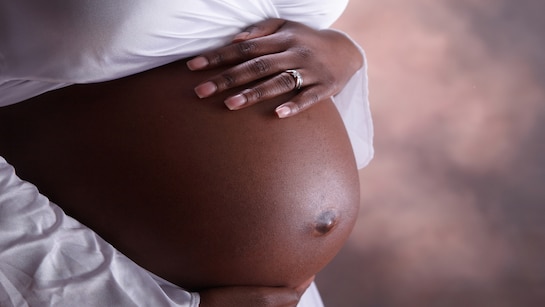“Infertility is the loudest cry you’ll ever make. It’s the one no one hears, because you’re not allowed to speak.”
— Adaobi, 38, IVF mother after 12 years of silence
In a small church in Surulere, Lagos, the choir breaks into worship. Women clap, some dance, others close their eyes in reverence. But Adaobi sits still.
Behind her tightly folded arms and Sunday dress is a storm that’s raged for over a decade—a battle with infertility that cost her friends, nearly her marriage, and almost her life.
Like millions of Nigerian women, her womb became a public courtroom, judged by in-laws, neighbors, even strangers on buses. The verdict was always the same: “You are not woman enough.”
The Weight of Expectation
In Nigeria, motherhood is not just expected—it is demanded.
For many families, a woman’s value is still measured by the sound of a child crying in her home. If that sound never comes, the whispers grow louder.
“My own mother asked if I had used my womb for rituals,” Adaobi says, her voice steady. “I was 26. I had only been married a year.”
As the years passed with no pregnancy, the marriage that had once bloomed with joy began to wither. Her husband, Chuka, once her best friend, grew quiet. Distant. Angry.
“We didn’t talk anymore. We just existed.”
Then came the threats of a second wife, the midnight prayers, the visits to prophets, the spiritual cleanses, the herbs, the blame. The violence.
“He never hit me. But the silence was a kind of violence. I would have preferred he slapped me and ended it.”
The Silent Suffering of Millions
Adaobi’s story is heartbreakingly common.
In Nigeria, 1 in 4 couples face infertility, but women bear the brunt of the shame. While medical research shows male infertility is just as prevalent, cultural perceptions place the responsibility squarely on women’s shoulders.
“It doesn’t matter what the test says. In society’s eyes, it’s always the woman’s fault,” says Dr. Abayomi Ajayi, a fertility specialist in Lagos. “And this is wrong!”
The consequences are dire. Women have been divorced, disinherited, or subjected to psychological and physical abuse. Some turn to unregulated spiritual treatments, others fall into depression.
And yet, they suffer in silence.
The Turning Point: Science Meets Hope
Adaobi’s salvation came in 2023, in the form of a quiet Google search:
“Best IVF hospital in Nigeria.”
“I had heard of IVF before, but I thought it was only for rich people—or white people,” she laughs softly.
But things had changed. Clinics like Nordica Fertility Centre had begun offering affordable, accessible IVF treatments, with flexible payment plans, tele-consults for the diaspora, and even emotional counseling.
“They didn’t just treat me like a patient. They treated me like a woman who had been hurting for too long.”
Breaking the Silence, One Story at a Time
In 2025, Nigeria is witnessing a quiet revolution.
More women are speaking up. Influencers, celebrities, and everyday people are sharing their IVF journeys on TikTok, Instagram, and YouTube. Hashtags like #IVFNaija, #InfertilityIsNotMyFault, and #HopeInScience are trending.
Adaobi joined them.
She recorded her journey—every injection, every prayer, every blood test—until one morning, two pink lines appeared on her pregnancy test.
“I held that test like it was gold. I cried so loudly, my neighbor thought someone had died.”
A New Chapter Begins
Today, Adaobi is the mother of twins—a boy and a girl born in early 2025.
She still attends church, still wears the same perfume, still claps during worship—but something is different now. She is whole, not because she has children, but because she found her voice.
“IVF gave me a family. But breaking the silence gave me myself back.”
She now mentors women online, runs a support group in Lagos, and speaks at conferences to demystify infertility.
“It’s not a curse. It’s not a punishment. And you’re not alone.”
The Future of Fertility in Nigeria
Nigeria’s IVF landscape is expanding rapidly. From Lagos to Abuja, clinics like Nordica fertility centre are seeing record numbers of hopeful couples. Egg freezing, sperm donation, and surrogacy are becoming part of the conversation. Even men are slowly joining the dialogue.
But the journey is far from over.
There is still stigma. Still shame. Still, women are crying behind closed doors. But organizations like Merck Foundation through their “More than a mother” media awards are changing the narrative.
Onwumere is Chairman, Advocacy Network On Religious And Cultural Coexistence (ANORACC)



